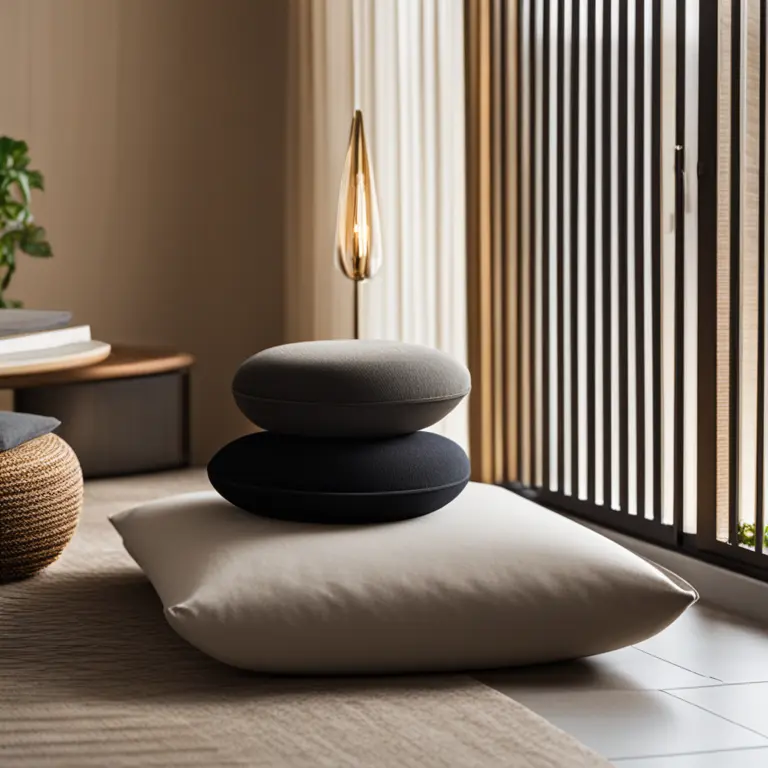
Beginner Meditation Techniques: A Simple Guide
Discover easy meditation practices for starters to cultivate mindfulness and inner peace in your daily life.
article by Hina Kurosawa
Meditation: A Modern Take for Starters
Meditation, once an ancient practice shrouded in mystique, is now widely embraced for its extensive benefits. Beginners in 2024 often approach meditation seeking stress reduction, enhanced focus, and a sense of overall well-being. With the continuous advancements in brain imaging and mindfulness research, meditation's positive impacts are better understood, making it an essential tool for modern living. To start your journey, all that is required is a quiet space, a few minutes of your day, and an open mind.

Setting the Scene for Serenity
Your environment plays a critical role in the success of your meditation practice. Choose a tranquil spot where interruptions are unlikely. Soften the lighting, perhaps by using candles or dimmable lamps, and consider playing gentle sounds of nature or instrumental music to assist in creating a calming atmosphere. Ensure your phone is silenced—or even better, in another room—to reduce the temptation to check it. Comfort is key, so wear loose-fitting garments and prepare a cushion or chair to support your posture.

Finding Focus through Breathing
One of the simplest techniques for beginners is breath-focused meditation. Start by sitting comfortably with your back straight. Close your eyes and slowly breathe in through your nose, allowing your chest and belly to expand. Exhale gently through your mouth or nose, feeling your body relax. Stay connected with the rhythm of your breath. When your mind wanders, and it will, gently bring your focus back to the sensation of breathing. This anchors your attention to the present moment and calms the mind.

Bodyscan for Mind-Body Harmony
Another introductory method is the bodyscan. Lie down or sit in a relaxed position. Close your eyes and take several deep breaths. Slowly direct your awareness to the top of your head and then gradually move your focus through each part of your body, down to your toes. Take your time to notice any sensations, tensions, or warmth as you shift your attention from one body part to the next. This practice promotes bodily awareness and a state of relaxed alertness.

The Role of Mindfulness Meditation
Mindfulness meditation has gained prominence for its effectiveness in reducing stress and increasing emotional regulation. It involves maintaining a moment-by-moment awareness of our thoughts, feelings, bodily sensations, and surrounding environment. It often entails a non-judgmental acceptance of thoughts and feelings that arise. As a beginner, start with short sessions, even 5-10 minutes, and gradually increase the duration as you grow more comfortable with the practice.
Incorporating Visualization for Clarity
Visualization is a powerful technique where you focus on a mental image or scenario. It could be a place that makes you feel at peace or an object that holds significance for you. Envision the details—the sounds, scents, and colors. It’s like taking a mental holiday that refreshes your mind, sharpens concentration and brings about a sense of tranquility in your day.
Meditative Practices in Everyday Life
Meditation doesn't always mean sitting still. Mindful walking, eating, and even daily chores can be meditative if approached with intention and focus. Whether you are walking to the store or brushing your teeth, pay attention to the encompassing experience. This integration of meditative practices into daily life ensures the cultivation of mindfulness and its benefits beyond the formal sessions of meditation.
Published: 2/12/2024
Modified: 2/12/2024
More predictions
Come back here soon to learn more about yourself and your future


Diverse Meditation Techniques for Inner Tranquility
Explore a concise guide to diverse meditation techniques designed for fostering inner peace and mindfulness in the modern world.


Diverse Meditation Techniques for Modern Practitioners
Discover a range of meditation methods suited for contemporary lifestyles, offering pathways to inner peace and clarity.


Variety of Meditation Practices for Inner Peace
Discover a curated list of meditation techniques to cultivate mindfulness and tranquility in your daily life.